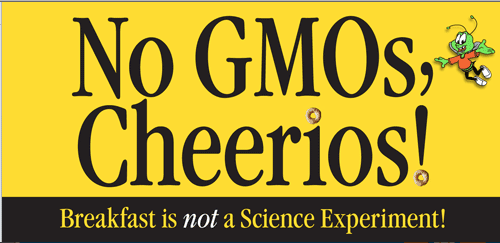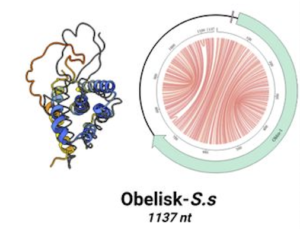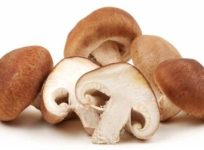In response to intensifying pressure from consumers and advocacy groups, General Mills recently announced a year-long plan to phase out genetically-modified ingredients from its popular Cheerios cereal line.
 GMO-based ingredients—in the form of sugar (from GM sugar beets), corn starch (from GM corn), and vegetable oils (from GM canola and other plants), are far more common in breakfast cereals than many people realize, according to GMO Inside, a coalition of consumer advocacy groups spearheaded by Green America, and including the Institute for Responsible Technology, and Food Democracy Now.
GMO-based ingredients—in the form of sugar (from GM sugar beets), corn starch (from GM corn), and vegetable oils (from GM canola and other plants), are far more common in breakfast cereals than many people realize, according to GMO Inside, a coalition of consumer advocacy groups spearheaded by Green America, and including the Institute for Responsible Technology, and Food Democracy Now.
In 2012, the organization focused a massive and well-orchestrated social media campaign focused on Cheerios, a venerable brand made by General Mills, that is the most popular breakfast cereal in the US. The campaign generated more than 50,000 social media posts urging the company to eliminate GM ingredients from Cheerios. During one week in October, more than 25,000 people from all over the country bombarded General Mills with emails and phone calls.
Sensitive to public pressure, and eager to maintain Cheerios’ reputation as a “healthy” breakfast option, the company announced on January 2, that it is committed to eliminating GM ingredients—mainly beet sugar, corn starch, canola oil– from the original Cheerios recipe over the course of the year.
Major Victories
Given the ubiquity of the little oaty O’s in America’s cereal bowls, the announcement was a major victory for the anti-GMO movement, and it followed a similar announcement from Post Foods, which committed to eliminating GMOs from its popular Grape Nuts brand.
Post went even further, stating that the company will be submitting its new GM-free product to a yet-to-be named third-party agency for verification.
GMO Inside is pleased with its Cheerios win, and applauded the company’s willingness to address consumer concerns. Still, it wants General Mills to go further by cutting GMOs not only from the original brand but from its wildly popular Honey Nut Cheerios, and the other 11 of its flavored Cheerios line extension.
According to a press release issued by the group, Honey Nut Cheerios is the breakfast of choice for over 6 million people – many of them children. The Honey Nut recipe contains the same number of potentially GM ingredients as regular Cheerios, but with nine times the amount of sugar, mostly derived from GM sugar beets.
For this reason, it will be that much harder for the manufacturer to create a GMO-free formula, but all the more important owing to the sheer volume of sugar involved.
GMO Inside, which says it represents over 200,000 consumers and non-profit groups, is also pushing General Mills to follow Post’s lead and submit the reformulated Cheerios for 3rd party non-GMO verification.
Mixed Messages
“General Mills has the opportunity to build on the important step they took in making regular Cheerios non-GMO by now taking the GMOs out of America’s favorite breakfast cereal, Honey Nut Cheerios,” states GMO Inside Campaign Director Nicole McCann. “More and more consumers are looking for non-GMO options, especially for the foods that they feed to their children, and those consumers will be letting General Mills know they want the GMOs off their breakfast table.”
General Mills and other Big Food producers have been walking a tightrope on the GM issue, often sending mixed messages to consumers. 
On the one side, they want to show sensitivity and responsiveness to public concerns about the still-unknown long-term health and environmental impact of GMO-based agriculture. On the other, they have been categorically opposed to GMO labeling on food products.
GMO Inside points out on its website that General Mills contributed over $1 million over the last two years in campaigns to squash GM labeling legislation in Washington state.
END







